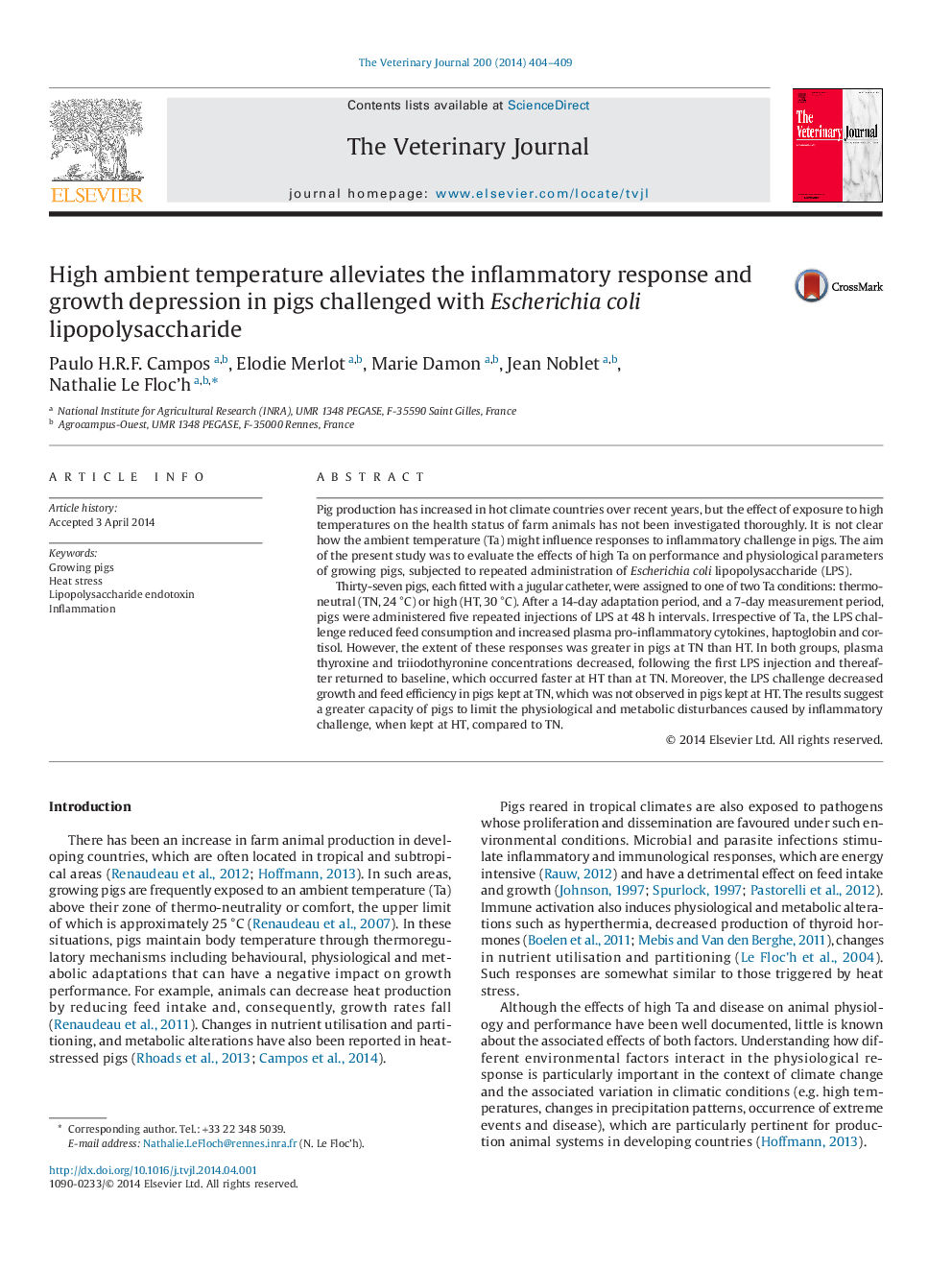| Article ID | Journal | Published Year | Pages | File Type |
|---|---|---|---|---|
| 2463946 | The Veterinary Journal | 2014 | 6 Pages |
Pig production has increased in hot climate countries over recent years, but the effect of exposure to high temperatures on the health status of farm animals has not been investigated thoroughly. It is not clear how the ambient temperature (Ta) might influence responses to inflammatory challenge in pigs. The aim of the present study was to evaluate the effects of high Ta on performance and physiological parameters of growing pigs, subjected to repeated administration of Escherichia coli lipopolysaccharide (LPS).Thirty-seven pigs, each fitted with a jugular catheter, were assigned to one of two Ta conditions: thermo-neutral (TN, 24 °C) or high (HT, 30 °C). After a 14-day adaptation period, and a 7-day measurement period, pigs were administered five repeated injections of LPS at 48 h intervals. Irrespective of Ta, the LPS challenge reduced feed consumption and increased plasma pro-inflammatory cytokines, haptoglobin and cortisol. However, the extent of these responses was greater in pigs at TN than HT. In both groups, plasma thyroxine and triiodothyronine concentrations decreased, following the first LPS injection and thereafter returned to baseline, which occurred faster at HT than at TN. Moreover, the LPS challenge decreased growth and feed efficiency in pigs kept at TN, which was not observed in pigs kept at HT. The results suggest a greater capacity of pigs to limit the physiological and metabolic disturbances caused by inflammatory challenge, when kept at HT, compared to TN.
